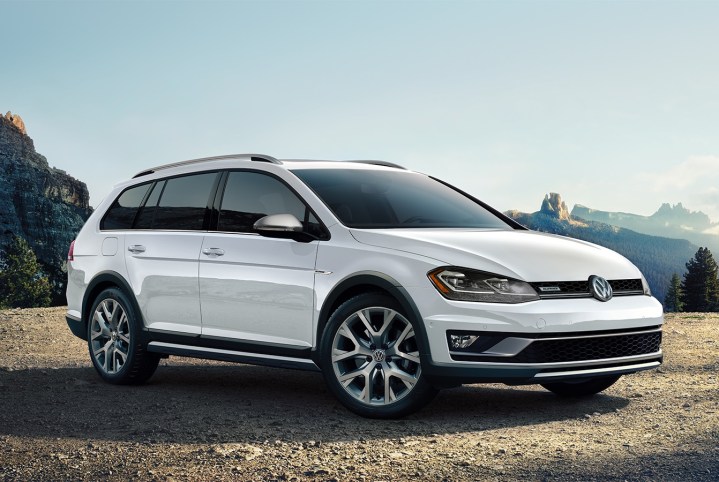
The Volkswagen Golf Sportwagen and Golf Alltrack (pictured) will soon have more in common with the born-again Beetle than the emblem on their nose. The German automaker confirmed both nameplates will retire at the end of 2019, and it’s not currently planning on replacing them on the American market.
The Sportwagen (formerly a Jetta, now a Golf) was once one of Volkswagen’s hippest and most popular models, but sales dipped as buyers pivoted toward crossovers and SUVs. Volkswagen explained crossovers and SUVs defend a 47-percent share of the American market so far in 2019, and they represent over 50 percent of its sales. The ongoing shift has dented the popularity of every body style, including the traditional sedan, but wagons took the biggest hit.
We knew the two wagons would retire soon, because the seventh-generation Golf they’re based on is at the end of its life cycle. SUV dominance isn’t limited to the United States, and Volkswagen might not even develop a station wagon variant of the eighth-generation Golf for Europe, the body style’s last bastion. British magazine Autocar learned the long-roof could be dropped as the firm moves to simplify the Golf lineup. Volkswagen hasn’t commented on the report, so we need to wait until the eighth-generation Golf makes its debut later in 2019 to find out more.
While the Sportwagen and the Alltrack didn’t represent a huge chunk of Volkswagen’s American sales, they’ll leave a gap that the company plans to fill by releasing — you guessed it — additional crossovers and SUVs over the coming years. It will introduce a shorter, five-seater variant of the Atlas by the end of 2019, an electric model previewed by the ID Crozz concept in 2020, and a sub-Tiguan soft-roader in 2021.
In the meantime, American motorists determined to resist the siren song of the crossover and hunting for a great station wagon still have a handful of options to choose from, though all of them are more expensive than the outgoing Volkswagens. The Subaru Outback is entering the 2020 model year after receiving a full redesign that adds a sharper look, a new platform, and more tech. The Buick Regal TourX stands out as the only American station wagon sold in the United States. Both are relatively rugged models with a crossover-esque design. Buyers who want a regular wagon will need to stretch their budget to reach the Volvo V60.



